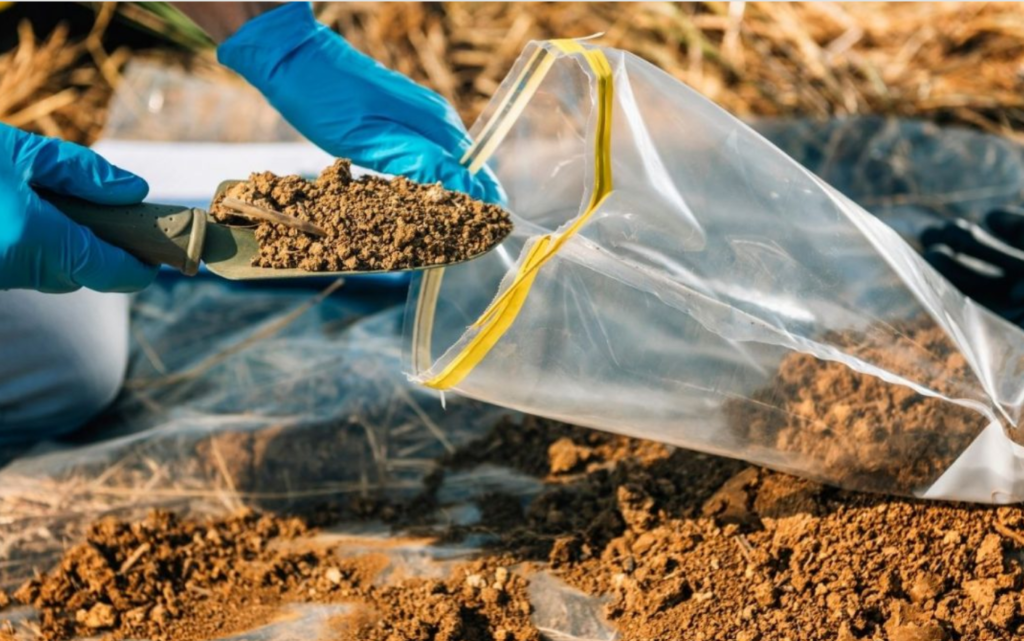As the demand for sustainable farming practices continues to grow, farmers and gardeners alike are looking for ways to minimize their environmental impact while maximizing crop yields. One of the most powerful tools in sustainable agriculture is soil testing. By providing detailed insights into the health and composition of soil, testing allows farmers to make informed decisions that benefit both their crops and the planet.
In this post, we’ll explore the role of soil testing in sustainable agriculture and how it contributes to healthier soil, better yields, and a more eco-friendly approach to farming.
What is Soil Testing?
Soil testing involves analyzing a soil sample to determine its nutrient content, pH level, and overall health. This analysis provides a snapshot of the soil’s current condition, revealing whether it has the nutrients necessary to support healthy plant growth or if adjustments are needed.
The results of a soil test can help identify nutrient deficiencies, imbalances, or toxic levels of certain elements. With this information, farmers can fine-tune their practices to create the optimal environment for crops while reducing the need for chemical inputs.
How Soil Testing Supports Sustainable Farming Practices
Minimizes the Use of Chemical Fertilizers
One of the primary goals of sustainable farming is to reduce the reliance on synthetic fertilizers, which can pollute waterways and harm local ecosystems. Soil testing allows farmers to apply only the nutrients that their soil actually needs. By knowing the precise levels of nitrogen, phosphorus, and potassium in the soil, farmers can avoid over-fertilizing and prevent excess nutrients from leaching into the environment.
This targeted approach reduces the overall amount of fertilizer used, saving farmers money and decreasing the environmental impact of their operations. In some cases, natural amendments like compost or organic matter can be used in place of chemical fertilizers, further enhancing sustainability.
Prevents Nutrient Runoff
When excess nutrients, particularly nitrogen and phosphorus, are added to the soil, they can run off into nearby water bodies, causing pollution and contributing to problems like algal blooms. Soil testing helps prevent this by ensuring that nutrients are applied at the right levels, reducing the risk of runoff.
Sustainable agriculture prioritizes protecting the environment, and soil testing plays a crucial role in ensuring that fertilizers and other amendments are used responsibly and in quantities that won’t cause harm.
Promotes Soil Health
Healthy soil is the foundation of any sustainable farming system. Soil testing provides valuable insights into the organic matter content and microbial activity within the soil, which are critical for supporting healthy plant growth. By monitoring these factors, farmers can make informed decisions about how to maintain and improve soil health.
Practices like crop rotation, cover cropping, and the addition of organic matter can be tailored based on soil test results. These methods help build a rich, living soil that can support crops year after year without degrading or becoming depleted.
Optimizes Water Usage
Sustainable farming also involves using water efficiently. Soil testing can help determine the soil’s water-holding capacity and drainage properties, which inform irrigation practices. If the soil is too compacted or lacks organic matter, it may not retain water well, leading to excessive irrigation needs. On the other hand, soil with poor drainage can become waterlogged, suffocating plant roots.
Supports Biodiversity
Sustainable farming emphasizes biodiversity, both above and below the soil. A healthy, well-balanced soil ecosystem is teeming with beneficial microorganisms that help break down organic matter and make nutrients available to plants. Soil testing allows farmers to monitor the biological activity within their soil and adjust practices to support a thriving ecosystem.
For example, low levels of organic matter or poor microbial activity can be addressed by adding compost or practicing no-till farming, both of which support soil biodiversity. This, in turn, promotes stronger, more resilient crops that are less reliant on external inputs.
Increases Crop Yields in an Eco-Friendly Way
At the end of the day, sustainable agriculture isn’t just about reducing environmental impact—it’s also about ensuring that farms remain productive and profitable. By using soil testing to fine-tune nutrient management, water usage, and soil health, farmers can increase their crop yields without resorting to harmful practices that deplete the land.
Higher yields mean more food produced with fewer inputs, which benefits both farmers and the environment. Sustainable agriculture seeks to create a harmonious relationship between farming and nature, and soil testing is an essential tool in achieving this balance.
Soil Testing
Soil testing is one of the simplest yet most powerful steps farmers can take toward creating a more sustainable agricultural system. It provides critical data that informs every aspect of farming, from nutrient management to water conservation and soil health.
By regularly testing their soil, farmers can:
- Reduce their reliance on chemical fertilizers
- Prevent nutrient runoff and water pollution
- Improve soil health and biodiversity
- Optimize water use and irrigation systems
- Increase crop yields without damaging the environment
Conclusion
Sustainable agriculture is all about making smarter, more informed choices that benefit both the land and the people who depend on it. Soil testing is the first step toward achieving this goal.

